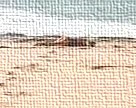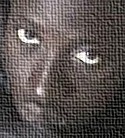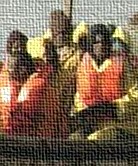


See images and videos of the tragedy / drawings in black and white
A human tragedy equivalent to
12 TITANICS!!
(print)
En el Titanic viajaban 3.000 personas, la mitad, 1.500 murieron
En 2006 de hablaba de unos 6.000 subsaharianos muertos: 6000 / 1.500 = 4 Titanics
Ahora ya se habla de unos 18.000 subsaharianos muertos: 18.000 / 1.500 = 12 Titanics
¡¡HAGAMOS ALGO, YA!!
Between
"Massive Death
of Immigrants",
between African and the



See images and videos of the tragedy
/ drawings in black and white
Related Articles:
Articles
transcribed, translated or written by:
Father Joan Manuel Serra Oller
Parish house. Pl.
Dr. Salvans 1 - Sant Sadurní
d'Anoia 08770 (Prov. of
Barcelona, Spain). Tel. 34 667005844. Spanish passport
number: 46141583 – H
Between
Article appeared in the newspaper, Yes,
you can (the Newspaper of integration), April, 1 to 7, of 2006,
/Brussels/
The president of the European Parliament, Josep Borrell (a Catalan), urged the leaders of the European
Union to accelerate the establishment of a common policy in the matter of
immigration in the face of the drama of the hundreds of deceaseds
in their attempt to reach the Canary islands.
"In less than
a month, the equivalent of 4 Titánics have died,
drowned between Africa and the Canary Islands", Borrell explained,
in a press conference, after appearing before the Chiefs of State of the
Twenty-five.
In his speech before the leaders, Borrell
lamented the lack of advances in this area since the accord to launch the
migratory policy in the summit of
He denounced that we Europeans "are facing
migration by bouncing the problem".
"Massive Death of
Immigrants", between African and the
Antena 3 Television News (
A note of the Department of the Interior alerted the
past month of December 2005, of the possible death of 1,700 immigrants coming
from
The document drafted by the Civil Guard is dated
View the full article, with pictures and video of the
human drama:
Tragedy
without
course. A boat with 500
immigrants travels through the
32 sub-Sahara immigrants die in the
shipwreck of their boat in waters of Nuadibú (
A boat with 500
immigrants travels through the
Source:
Journal:
Around 500
sub-Sahara immigrants travel in a patera* boat
on the
The delegate of
the Government in the
The ship started
off, according to police sources, ten days ago from some port of Guinea-Conakry
to the
The official
version was received with skepticism by the Canary Government. The advisor of
Presidency and Justice, Jose Miguel Ruano, affirmed
yesterday that it was "evident" that the boat was heading for the
archipelago. Also, Ruano criticized the
"difficult" relationship with the Delegation of the Government, to
whom it accused "of hiding the reality to be able to make a good diagnosis
of the situation".
If the boat
detected
The patera boats
always correspond with old ships that are in African ports in a situation next
to the taking apart. In this sense it is worth pointing out that in the last
days the presence has been observed of old Russian boats in docks of African ports, that could be used with the purpose of transporting
emigrants to
On a smaller
scale, the arrival of immigrants continues in the
*Note: definition of patera in the Wikipedia,
The Free Encyclopedia.
In the Spanish language, a patera is a type of boat. In current
usage it refers to any of the floating devices used by African people smugglers
to transport illegal immigrants from Africa to Fuerteventura in the Canary
Islands (more recently also to Gran Canaria and Tenerife) or across the
http://en.wikipedia.org/wiki/Patera
32
sub-Sahara immigrants die in the shipwreck of their boat in waters of Nuadibú (
The other 25 sub-Sahara immigrants, rescued by a
Mauritanian fishing boat, have been sent to hospitals of the Nuakchot capital. The group of sub-Saharians,
who left 17 days ago from Nuadibú in a boat, were dragged by the current to
The rescued who are in a serious health condition due
to insolation, thirst and hunger, are citizens of
source:
http://www.efe.es/
Related
articles:
Corruption in
Summary: Samuel, from
Father Joan Manuel Serra,
Note: Catalan former bishop Casaldaliga,
in Brasil, a world-renowned defender of the poor
indigenous people, recently on Catalan Television also denounced the fact that
we, in the North, have the money from the corrupt rulers in the South.
______________________________________________________________
Hello,
I am a Catholic priest in
This
experience has made me especially sensitive to the misery of the
In a
recent article in a Catalan newspaper, Avui, the
president of
This
keeps
For how long will we tolerate this.
For how long will we claim to defend democracy and human rights and accept in our banks the money from corrupt evil rulers in the south, participating therefore, in their corruption?
Who can change that? You and I can, if we want to!
George
Washington, when asked about the viability of converting 13 divided colonies
into the
If you are wise and honest, please pass the word.
Do it for Samuel, do it for the billions of Samuels who have a right to a decent living, just like you and me. You and I are not alone, God is with us on this cause.
Fr. Joan Manuel Serra
___________________
My translation of the article in the Avui newspaper:
Corruption flagellates the poorest continent
DRAMA: The
African Union calculates that 150,000 million dollars are lost every year as a
result of the sacking of the public coffers – THREATS:
Avui’s Correspondant in Abuja, Capital of Nigeria
That
corruption is the norm in
The volume which it is lost represents, according to Obasanjo, 25% of the African gross inner product. The Nigerian president offered these numbers during a meeting of the Initiative for the Transparency in the Extractive Industries, a world-wide organism created with the objective of controlling the companies - often public - exploiting the natural resources of the States and that, according to him, are one "of the greatest contributors to this monumental and avoidable loss". "The popular paradox of poverty in the middle of abundance is the daily experience in many African countries rich in petroleum, gas and minerals", said Obasanjo. And he added: "Most of citizens of these countries still suffer the lack of basic facilities in health and education".
The Nigerian president directly pointed to the
"African unpatriotic citizens" who "sack our resources and cart
them towards western banks with the collaboration of the western financial
systems". In fact, while the first world-wide powers fill their
mouth condemning African corruption, their banks do not ask any questions when
somebody coming from the continent opens a millionaire account. One of
the examples usually mentioned is the one of two sons of the Nigerian dictator Sani Abacha (1993-98), who calmly
entered a bank of the
The
government of Tony Blair, however, is determined to face the phenomenon. In an
interview to the Reuters agency, the British foreign affairs minister, Jack
Straw, made it clear that
Straw
put
The Nigerian anticorruption agency accuses the governor of the central region of Plateau, Joshua Dariye, of having robbed 5.44 million dollars of the public coffers. A member of the Popular Democratic Party, declared last week that part of the booty went to finance the president’s re-election campaign, in 2003. The government denies it.
http://www.avui.cat/avui/diari/06/feb/18/155040.htm
(Avui is a Newspaper in
Translated
and sent by:
Father
Joan Manuel Serra
The Dramatic
Story of Samuel from Ghana
"Resident"
in the abandoned Sant
Andreu Army buildings,
in Barcelona,
burned alive on Christmas night
2002.
Text written by: Father Joan Manuel Serra, former assistant priest in the Sagrada Familia Parish of Barcelona (one of the many persons in Barcelona concerned about the dramatic situation of so many "illegal" immigrants").
Purpose: To achieve, through the effort of those in government and of simple citizens, a radical change in the treatment of "illegal" immigrants. To ensure that minimum rights such as decent housing will be garanteed.
"Raise high standards
to which the wise and honest can repair,
the rest is in the hands of God"
George Washington
(when asked about the viability of his aim of turning 13 divided colonies into the United States of America)
This letter is to tell you the striking story of a man from Ghana, a friend of ours, Samuel, who found himself wandering in the streets of Barcelona as an illegal immigrant and ended his days in a most horrible way.
In a very cold winter, a group of twenty-one Ghanians came to the Parish of the Sagrada Familia, where I was the assistant priest. They came because they had been told that there was somebody who would be willing to help them get off the street, were they were sleeping, suffering severe cold.
With God’s help and courage, we decided to set out to help them as much as we could. First, we got blankets for all of them, and we even spent a night with them in the street, with our blanket. Then we experienced the horrible cold at five in the morning when they get up to run into the subway, which opens at that hour. We told ourselves that it really was too cold to be in the street, and so we started calling provincials of religious congregations asking for a place of refuge for our twenty-one brothers (that’s what we considered them from the beginning).
Rapidly a religious order, the Marianist Brothers, agreed to open a big school first, and then a vacant center for street children (it was during the Christmas break) to have them sleep there for a few weeks. With the very generous economic help of other religious orders, we were able to spend a few more weeks off the street in pensions and youth hostels. However, we were spending too much money and the group had grown to 36.
We found a cheaper and longer lasting solution: to help pay the rent of two apartments of Ecuatorian immigrants where our friends went just to sleep. This lasted for months, until it became impossible for us to keep getting some 1000 euros monthly.
Samuel, a very pleasant and religious Ghanian, had joined the group coming to sleep in one of the apartments. I remember him (after I told them we had to leave, since we could no longer pay the rent) kneeling, looking up to me and asking me: "Pastor, what will happen to us when we find ourselves back in the street?"
I told them about the existence of some abandoned military buildings in the outskirts of the city, where many immigrants had found housing at 0 euros rent. Many of them decided to go there, although they realized the danger it meant of being arrested and deported.
Samuel and his friend Ansu, also from Ghana, shared a room in one of those gloomy buildings. I visited with them several times; I confess also out of human curiosity for that most strange but fascinating place. People from many nationalities had found refuge from cold and rain there: Rumanians, Russians, Ecuatorians, Chileans, Colombians, Morrocans, Algerians, SouthSaharians, and also a mixed group of Western Okupas. It was this later group who, through their legal advise, were able to avoid the army from throwing everyone out by force: people had been living there for more than a year, and therefore it was their legal home. Only a judge could ask them to leave.
However, it was not a place you looked forward to go back at night: it was too dark and too dangerous. I myself, one night, was almost seriously woulded by a violent drunkard who didn’t like my visit.
On Christmas night, last year, Samuel, decided he would not go back to sleep to the abandoned army buildings, and stayed and slept in the street close to where the main group had been sleeping two years earlier.
However, somehow he got in a fight with a street gang. They beat him up and left him half dead. The same gang returned some hours later, threw some gasoline on him, and burned him alive. People coming out of an early Christmas morning mass were witnesses of the dramatic and horrible end to Samuel’s life.
On the following day, the news brought consternation to the whole city of Barcelona. We are not at all used to such, horror-movie events. For most people it was the horrible case of a supposedly half drunk illegal Ghanian being brutally killed in the middle of the city by a street gang. However, for me, it was the case of my friend Samuel, whom I had come to love, and who, kneeling, had not too long ago said to me: "Pastor, what will happen to us when we find ourselves back in the street?"
I keep thinking back to that and I keep telling myself that Samuel will not have died, in such a horrible way, in vain. His vital experience, must be a turning point in the current policy in favor of so many illegal immigrants in the big cities of the rich and prosperous Western World.
This is were I believe that all of us, politicians and simple civilians, can and must do something. Immigration laws normally provide for the decent housing of illegal immigrants while their situation is being resolved. I know that millions of euros are budgeted for that purpose every year, but nobody seems to control or demand the actual investment of that money. Such investments are actually done in European countries like France, Ireland, Holland, etc.
Moreover, I believe that the great numbers of displaced people from the miserable South to the rich North, should be considered as refugees of a non-declared economic war between the North and the South. They come to us, the North, in such great numbers because of the scandalous difference between our standard of living and theirs. A scandalous difference mainly due to our abuse in a very unjust world-trade system: high benefits in the sale of products bought at ridiculous prices. Moreover, the participation of the North in many of the corrupt governments in the South (a corruption which facilitates the robbery of their natural resources) is widely known.
Realizing and recognizing this, the North should ensure the refuge, protection and humane treatment of those displaced by the dramatic economic unbalance!
With the help and courage from God may we be inspired to take the appropriate actions to ensure that Samuel will not have died in vain such a terrible death.
Fr. Juan Manuel Serra
Principles (Human rights for "illegals")
|
||||||||||||
| "We hold these
truths to be self-evident, that all men are
created equal, that they are endowed by their Creator with certain unalienable Rights,
that among these are Life, Liberty and the pursuit of
Happiness. That to secure these rights, Governments are instituted among Men,
deriving their just powers from the consent of the governed." Declaration of Independence, United States Congress, July 4th, 1776. |
Universal
Declaration of Human Rights Preamble / Preàmbul / Preámbulo "Whereas recognition of the inherent dignity and of the equal and inalienable rights of all members of the human family is the foundation of freedom, justice and peace in the world ..... " "Considerant que el reconeixement de la dignitat inherent i dels drets iguals i inalienables de tots els membres de la família humana és el fonament de la llibertat, la justícia i la pau en el món ... ""Considerando que la libertad, la justicia y la paz en el mundo tienen por base el reconocimiento de la dignidad intrínseca y de los derechos iguales e inalienables de todos los miembros de la familia humana ... " |
"Declarem aquestes
veritats com a evidents en elles mateixes, que tots els homes
són creats iguals, que els són concedits pel seu creador certs drets inalienables, que entre
aquests drets hi ha la Vida, la Llibertat i la recerca de la Felicitat. Que per assegurar aquests drets, el governs són
instituïts entre els homes, derivant els seus poders legítims del consentiment dels
governats." Declaració de Independència. Congrés dels Estats Units, 4 de juliol de 1776. =============== "Declaramos estas verdades como evidentes en ellas mismas, que todos los hombres son creados iguales, que les son concedidos por su creador unos derechos inalienables, que entre estos derechos está la Vida, la Libertad y la búsqueda de la Felicidad. Que para asegurar estos derechos, los gobiernos son instituidos entre los hombres, derivando sus justos poderes del consentimiento de los gobernados."Declaración de independecia. Congreso de los Estados Unidos, 4 de julio de 1776. |
||||||||||
|
||||||||||||
My dear friends, we
must love each other. Love
comes from God, and when we love each
other, it shows that we have
been given new life. We
are now God's
children, and we know him. God is love, and anyone who doesn't
love others has never known him.
God showed his love for us when he sent his only Son into the world to give
us life. Real love isn't our love
for God, but his love for us. God sent his Son to
be the sacrifice by which our
sins are forgiven.

Dear friends,
since God loved us this much, we
must love each other.
(1st John 4,7-11)